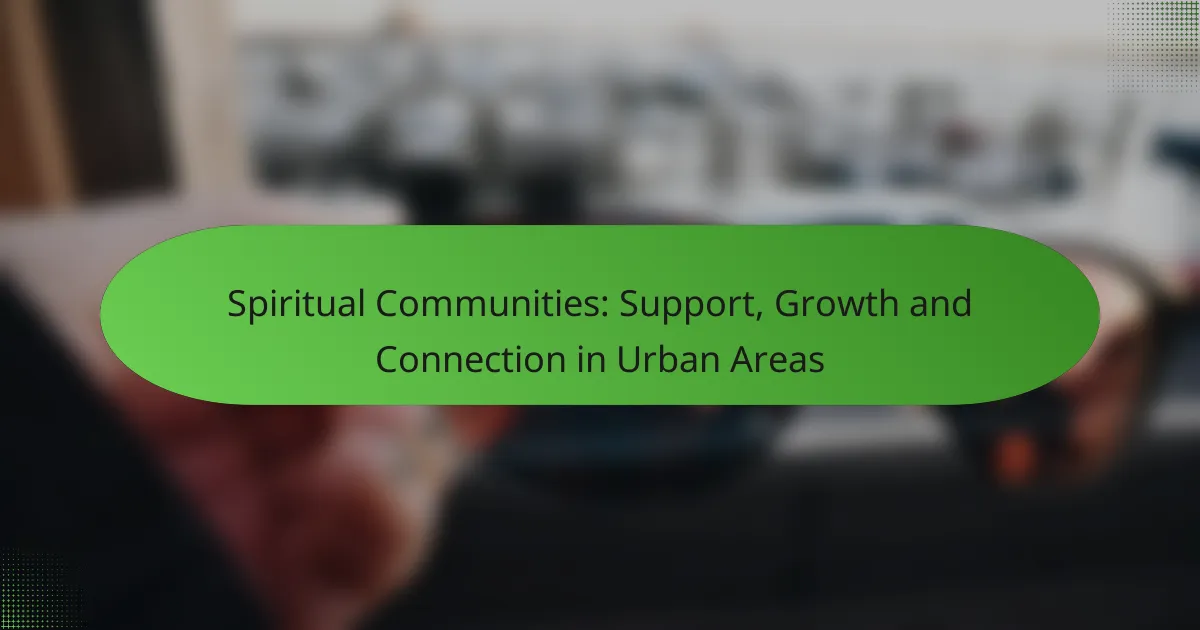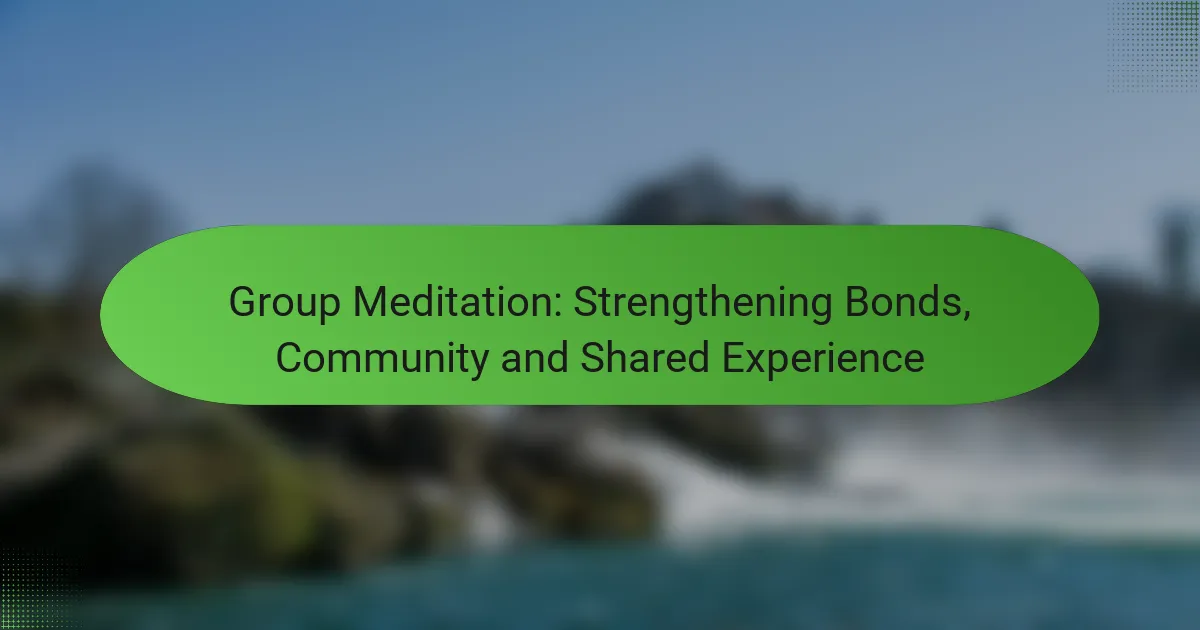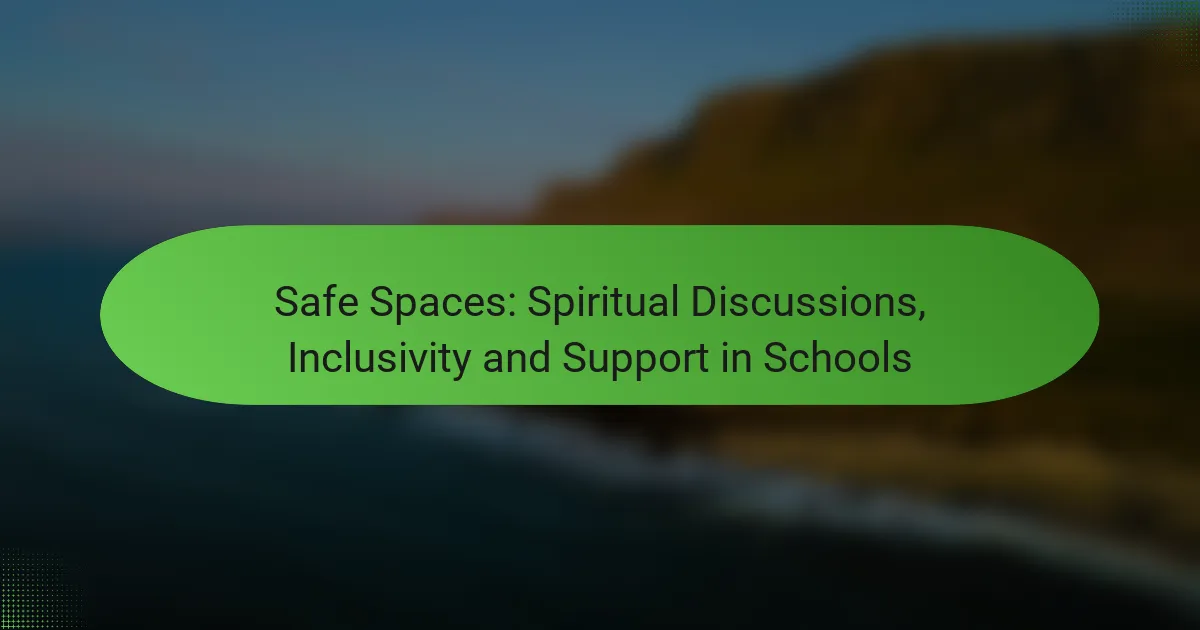In the bustling environment of urban areas, spiritual communities play a vital role in providing support, fostering personal growth, and facilitating meaningful connections. These diverse groups, ranging from traditional religious organizations to modern mindfulness centers, offer unique pathways for individuals seeking to navigate their spiritual journeys. By aligning personal beliefs with the values of a community, individuals can enhance their experiences of self-discovery and collective wisdom.
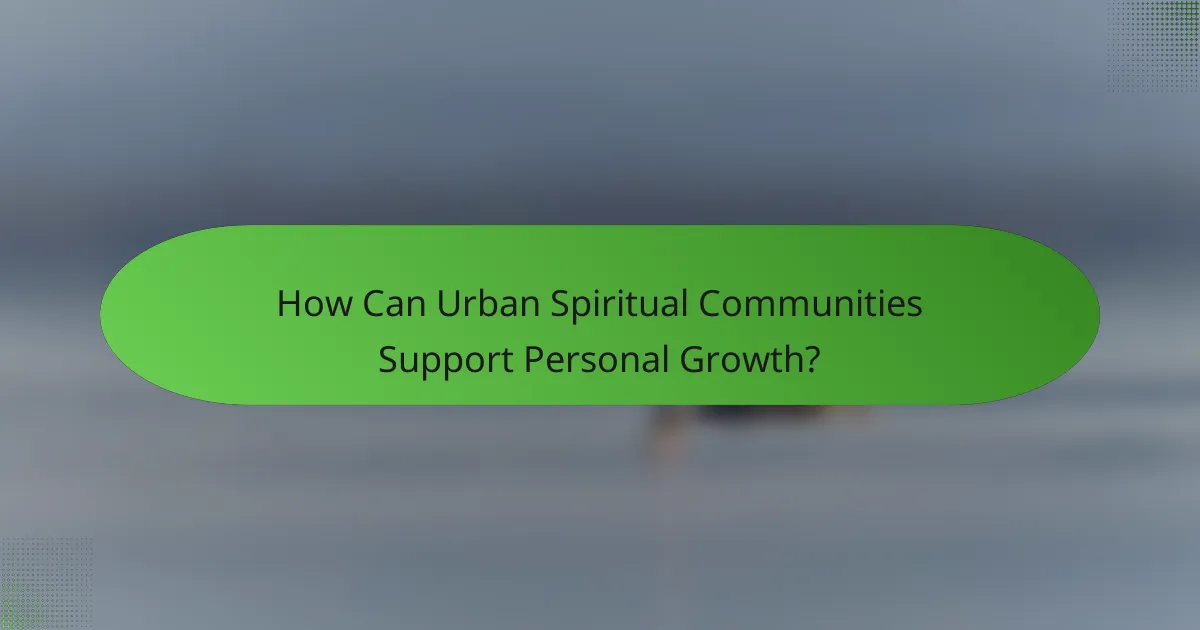
How Can Urban Spiritual Communities Support Personal Growth?
Urban spiritual communities provide essential support for personal growth by fostering connections, offering resources, and creating environments conducive to self-discovery. These communities help individuals navigate their spiritual journeys through shared experiences and collective wisdom.
Access to resources and workshops
Urban spiritual communities often host a variety of resources and workshops that cater to diverse spiritual needs. These may include meditation classes, yoga sessions, and discussions on spiritual texts, allowing members to explore different practices and philosophies.
Participating in workshops can enhance personal growth by providing structured learning experiences. Many communities offer these resources at little to no cost, making them accessible to a wider audience.
Networking opportunities with like-minded individuals
Networking within urban spiritual communities allows individuals to connect with others who share similar beliefs and values. These connections can lead to friendships, collaborations, and support systems that enrich personal growth.
Engaging with like-minded individuals can provide a sense of belonging and encouragement. Regular meet-ups, discussion groups, and social events facilitate these connections, fostering a supportive environment for spiritual exploration.
Mentorship programs
Many urban spiritual communities implement mentorship programs that pair experienced members with those seeking guidance. This one-on-one support can be invaluable for personal development, as mentors share insights and help mentees navigate their spiritual paths.
Mentorship can also provide accountability and encouragement, motivating individuals to pursue their spiritual goals. Communities may offer formal programs or informal arrangements, depending on their structure and resources.
Group activities and events
Group activities and events are integral to urban spiritual communities, as they promote interaction and collective learning. Activities may include retreats, volunteer opportunities, or communal rituals that strengthen bonds among members.
Participating in these events can enhance personal growth by exposing individuals to new perspectives and practices. They also create a sense of community, which can be crucial for those on their spiritual journeys.
Online support platforms
In addition to in-person connections, many urban spiritual communities offer online support platforms. These digital spaces allow members to share experiences, resources, and encouragement, especially for those unable to attend physical gatherings.
Online forums, social media groups, and virtual workshops can extend the reach of spiritual communities, making support accessible to a broader audience. This flexibility is particularly beneficial for individuals with busy schedules or those living in remote areas.
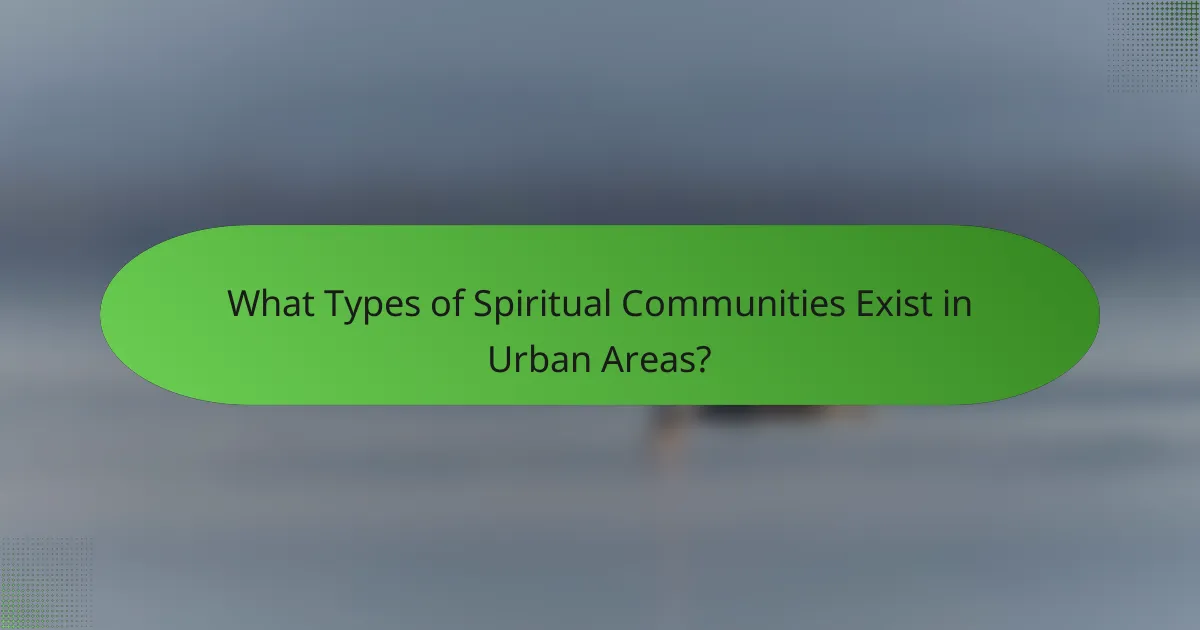
What Types of Spiritual Communities Exist in Urban Areas?
Urban areas host a diverse range of spiritual communities, each offering unique pathways for support, growth, and connection. These communities can include traditional religious organizations, modern New Age groups, mindfulness and meditation centers, and holistic health collectives.
Religious organizations
Religious organizations in urban settings often provide a structured environment for spiritual growth and community support. These can include churches, synagogues, mosques, and temples, which typically offer regular services, educational programs, and social events.
Many of these organizations focus on fostering a sense of belonging among members, often engaging in outreach programs to assist those in need within the community. Participation in these groups can enhance personal faith and provide a network of support during challenging times.
New Age groups
New Age groups emphasize personal spirituality and often blend various beliefs and practices, such as astrology, energy healing, and spiritual workshops. These communities tend to attract individuals seeking alternative paths to spiritual fulfillment outside traditional religious frameworks.
Members often participate in events like group meditations, healing circles, and workshops that encourage self-exploration and personal development. Engaging with these groups can provide a sense of connection and shared purpose among like-minded individuals.
Mindfulness and meditation centers
Mindfulness and meditation centers focus on practices that promote mental clarity, emotional balance, and spiritual awareness. These centers typically offer classes, retreats, and guided sessions aimed at cultivating mindfulness through techniques like breathwork and visualization.
Many urban centers provide accessible options for individuals of all experience levels, from beginners to advanced practitioners. Regular participation can lead to improved mental health and a deeper understanding of oneself, fostering a supportive community atmosphere.
Holistic health collectives
Holistic health collectives integrate various healing modalities, including yoga, acupuncture, and nutritional counseling, to support overall well-being. These communities often emphasize the connection between mind, body, and spirit, providing a comprehensive approach to health.
Members can benefit from workshops, classes, and one-on-one sessions with practitioners who focus on natural healing methods. Engaging with a holistic health collective can create a nurturing environment that promotes personal growth and community involvement.
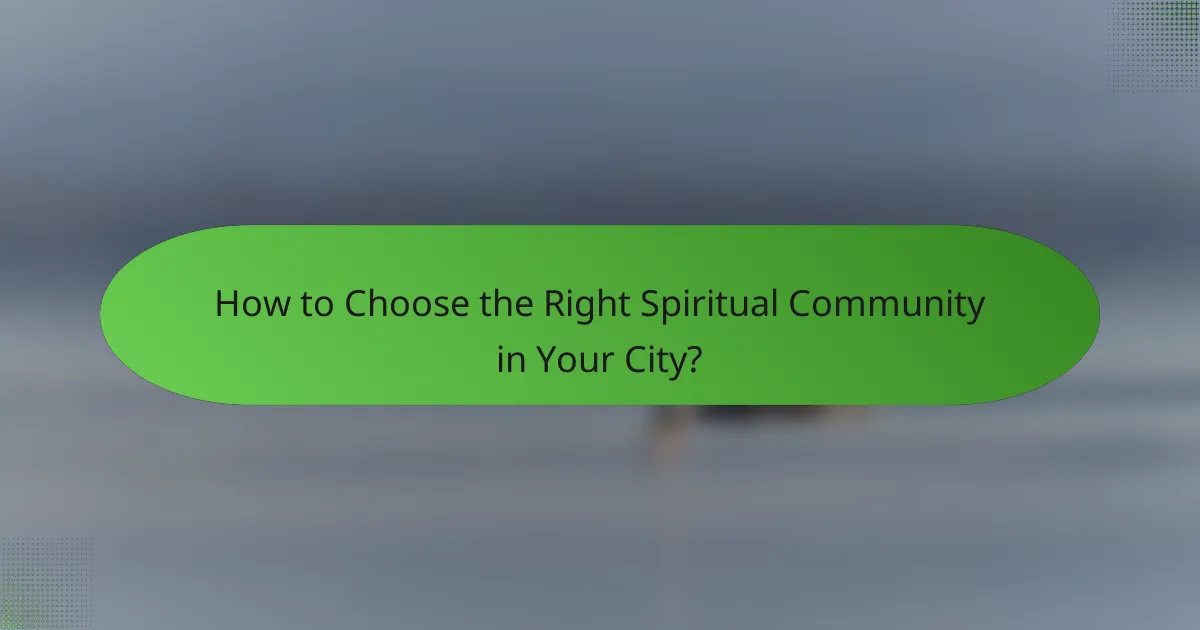
How to Choose the Right Spiritual Community in Your City?
Choosing the right spiritual community involves aligning your personal beliefs with the values and practices of the group. Consider what you seek in terms of support, growth, and connection to ensure a fulfilling experience.
Assess personal beliefs and values
Start by reflecting on your core beliefs and values. Identify what spiritual practices resonate with you, whether it’s meditation, prayer, or community service. Understanding your own spiritual needs will help you find a community that aligns with your principles.
Consider writing down your beliefs and values to clarify what you are looking for. This can serve as a guide when evaluating different communities, ensuring you choose one that supports your personal growth.
Evaluate community activities and offerings
Look into the activities and offerings of potential spiritual communities. Many groups provide workshops, classes, and regular gatherings that cater to various interests. Assess whether these activities align with your spiritual goals and whether they are engaging and meaningful to you.
Check if the community offers opportunities for involvement, such as volunteer work or leadership roles. Active participation can enhance your connection to the community and support your spiritual journey.
Consider location and accessibility
Location plays a crucial role in your ability to engage with a spiritual community. Choose a community that is conveniently located, whether it’s within walking distance or easily accessible by public transport. This can significantly impact your commitment and participation.
Additionally, consider the meeting times and frequency of gatherings. Ensure they fit into your schedule to avoid feeling overwhelmed or disconnected from the community.
Research community reputation
Investigate the reputation of potential spiritual communities. Look for reviews, testimonials, or feedback from current and former members. This can provide insight into the community’s dynamics and whether it fosters a supportive environment.
Engage with members in person or online to gauge their experiences. A positive reputation often reflects a healthy community culture, which is essential for your spiritual growth and connection.
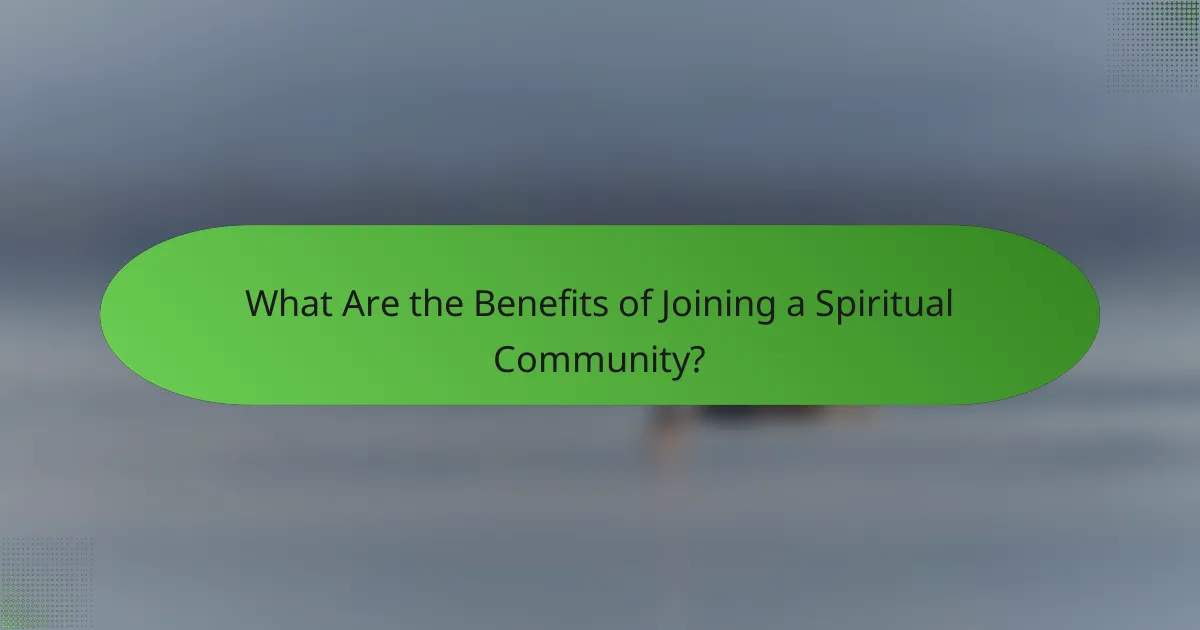
What Are the Benefits of Joining a Spiritual Community?
Joining a spiritual community offers numerous benefits, including emotional support, opportunities for personal growth, and enhanced social connections. These communities provide a nurturing environment for individuals seeking deeper meaning and connection in urban settings.
Emotional support and belonging
Spiritual communities foster a sense of belonging, which is crucial for emotional well-being. Members often share similar values and experiences, creating a supportive atmosphere where individuals can express their feelings and challenges without judgment.
Participating in group activities, such as meditation or prayer, can significantly reduce feelings of isolation. Many find comfort in knowing they are not alone in their spiritual journey, which can lead to improved mental health and resilience.
Opportunities for spiritual exploration
Being part of a spiritual community opens doors for exploration of various beliefs and practices. Members can engage in workshops, discussions, and retreats that encourage personal growth and deeper understanding of spirituality.
These communities often host guest speakers or organize events that introduce diverse perspectives, allowing individuals to expand their spiritual horizons. This exploration can lead to a more fulfilling and enriched spiritual life.
Enhanced social connections
Joining a spiritual community can significantly enhance social connections, providing opportunities to meet like-minded individuals. Regular gatherings and events create a platform for forming friendships based on shared beliefs and values.
These connections can extend beyond the community, leading to collaborations on social projects or support networks. Engaging with others in a spiritual context often results in meaningful relationships that contribute to a sense of community and belonging.
